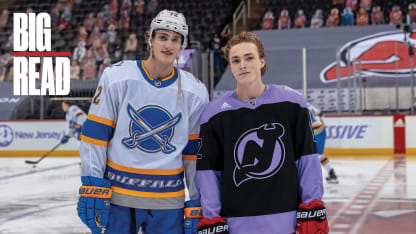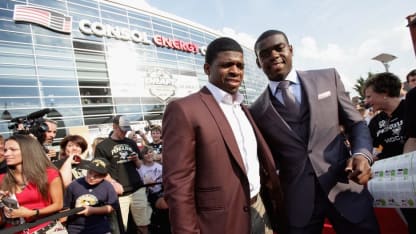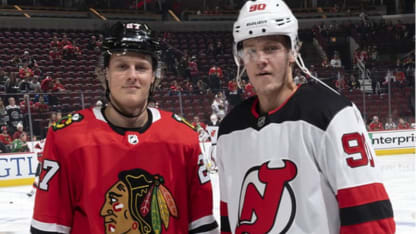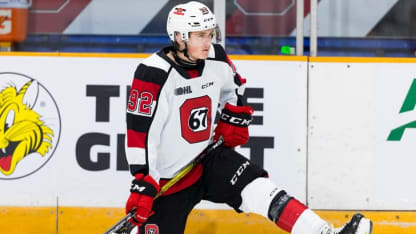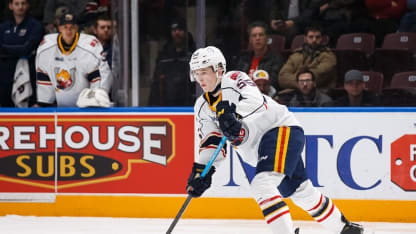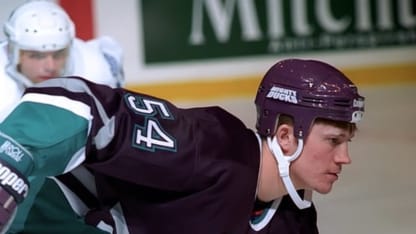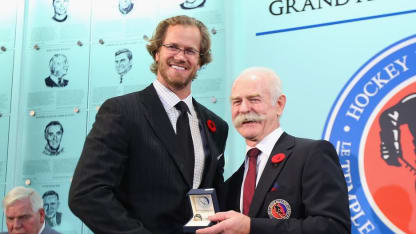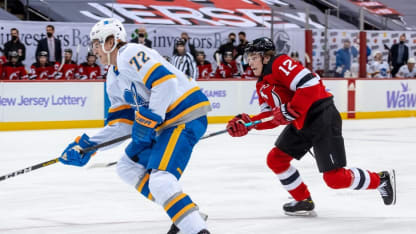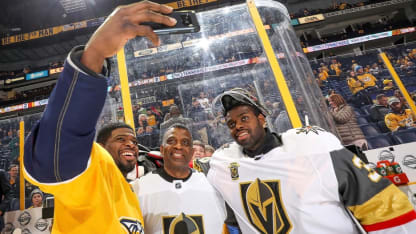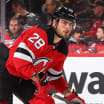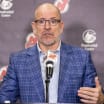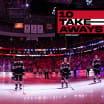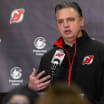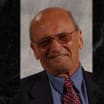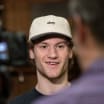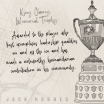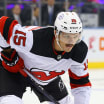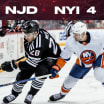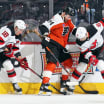Luck shined on Karl Subban when he was invited to play and hang out with a group of largely French-speaking kids on Peter St., where his family lived in Sudbury. Perhaps because of the French connection, Karl became a Montreal Canadiens fan (Karl has barely put a foot wrong in his life, but you can’t expect perfection).
Now a grandfather who has raised five grown children – two daughters came before his three hockey-playing sons and after becoming a Toronto high school principal, Karl Subban still comes across as a wide-eyed kid from Sudbury. A Sudbury kid with a trace of a Jamaican accent that creates an especially bold cadence when he’s making an important point. Like this one:
“When kids get older, they may not want to be around you as much, but they don’t love you any less. I have my theories (how to motivate kids) when they are younger … I think you always have to be there and be with them as much as you can and actually get down to do things with them, to play (hockey) with them.”
Subban recognizes that that sort of commitment isn’t always possible for all parents, but says that nurturing a proper environment is almost always possible. It’s also critically important because the love of the game, or any sport, grows organically in just such a setting.
“I never said ‘no,’ but I also didn’t have to push, either. P.K., Malcolm and Jordan always wanted it,” remembers Karl. “P.K., the boys, were always coming to me saying ‘Daddy, let’s go shoot pucks.’”
Brent Thomson grew up in Alberta. Even with the different background, his and Kim Thompson’s approach resonates with the one that Karl and Maria Subban used.
“Kim and I always encouraged the boys, but we never pushed them,” he said.
The commitment required to enroll a single child through competitive sports is expensive and time consuming. To put siblings through elite hockey is astronomical.
Equipment costs for ever-growing kids are one thing, but at least gear can be passed down. Registration and travel, time off work, all add to the bill and are fixed costs. Extra training and specialized coaching costs bubble up by the teenage years. To a certain extent, the spike in sons of retired NHLers following their fathers into the league is a practical, but also concerning result of that commitment.
If you’re around that environment from a young age, not only does it rub off on you, it also provides opportunity that is much harder to come by for kids who are not fortunate enough to have a professional athlete as a parent. You still must navigate the long odds of which Karl Subban referred to. To say nothing of taking advantage of the opportunity when it comes, or else the equally talented prospect sitting in the stall beside you may well take your job.
“Both my brother and I, we’ve been very fortunate to have been around an NHL team,” said Nolan Foote in a recent interview, of growing up around his father, Adam, and his Colorado Avalanche/Columbus Blue Jackets teammates. Foote repeated that sentiment in comments he made to the media after his NHL debut.
Examining the Devils siblings list is quite fascinating in this regard – the background of their parents.
In addition to Ellen Hughes being an outstanding three-sport athlete, Jim Hughes was a player at Providence before getting into coaching, including stints with both the Boston Bruins and the Toronto Maple Leafs organizations. It’s not hard to imagine Quinn, Jack and Luke gravitating to elite sport in general, and hockey in particular, growing up in the Hughes household.
Brent Thompson had a long pro career, both as a player and coach, and that surely helped both Tyce and Tage.
“We were always at the rink with him when we were really young,” Tyce said of his early years when his dad was still playing in the AHL. “And (as a result) being a professional hockey player is always something I wanted to do."
On the other hand, P.K. (and Malcolm/Jordan) Subban is a first-generation Canadian and the son of a teacher/principal. Graeme (and Brandt) Clarke’s dad, Chris, is an orthodontist.
The list seems roughly split down the middle between sons of athletes or not. Obviously, NHL players earn enough money to afford it when their kids begin to compete in high-level hockey. But as youth hockey has grown more expensive, for players whose parents weren’t pro athletes, they tend to have white-collar and/or middle-class (or higher) backgrounds.
On a broader level it’s a worrying trend, and not one unnoticed by the parents of Devils and B-Devils.
“Costs for kids sports are crazy,” said Brent Thompson, “but that seems to the way with everything, for all sports. I also think that hockey doesn’t need to be (a year-round) sport. It’s important that kids take a break from hockey, play other sports. I know that’s what my boys did.”
Forever one to see the positive side in pretty much everything, Karl Subban notes that there has been progress in accessibility for people of color and other backgrounds. He says that he’s encouraged that more of that progress will come.
“Hockey hasn’t always been welcoming for everyone,” he remembers, citing cost as one of the reasons that shut-outs kids of all backgrounds, but especially people of color.
“When the boys were growing up, it was always easy (for others) to assume whose parent I was. But now that isn’t always the case. There are other players who look like my sons. Most NHL games now have a (Black) player involved in some way. And even more so in junior and minor hockey. I think things are getting better, definitely.”
For all the time commitment and cost, being inclusive is free.
“When those kids on Peter St in Sudbury invited me to play,” remembers Subban, “Ah, man, that’s all it took. I was in.”
One wonders if the story of the Subban family had been different if that invite not been extended.
Now, Karl Subban deals with an entirely different change brought on by hockey.
“Everywhere I go, I’m no longer Karl Subban,” he says, with a hearty laugh, “I’m just P.K.’s dad."

